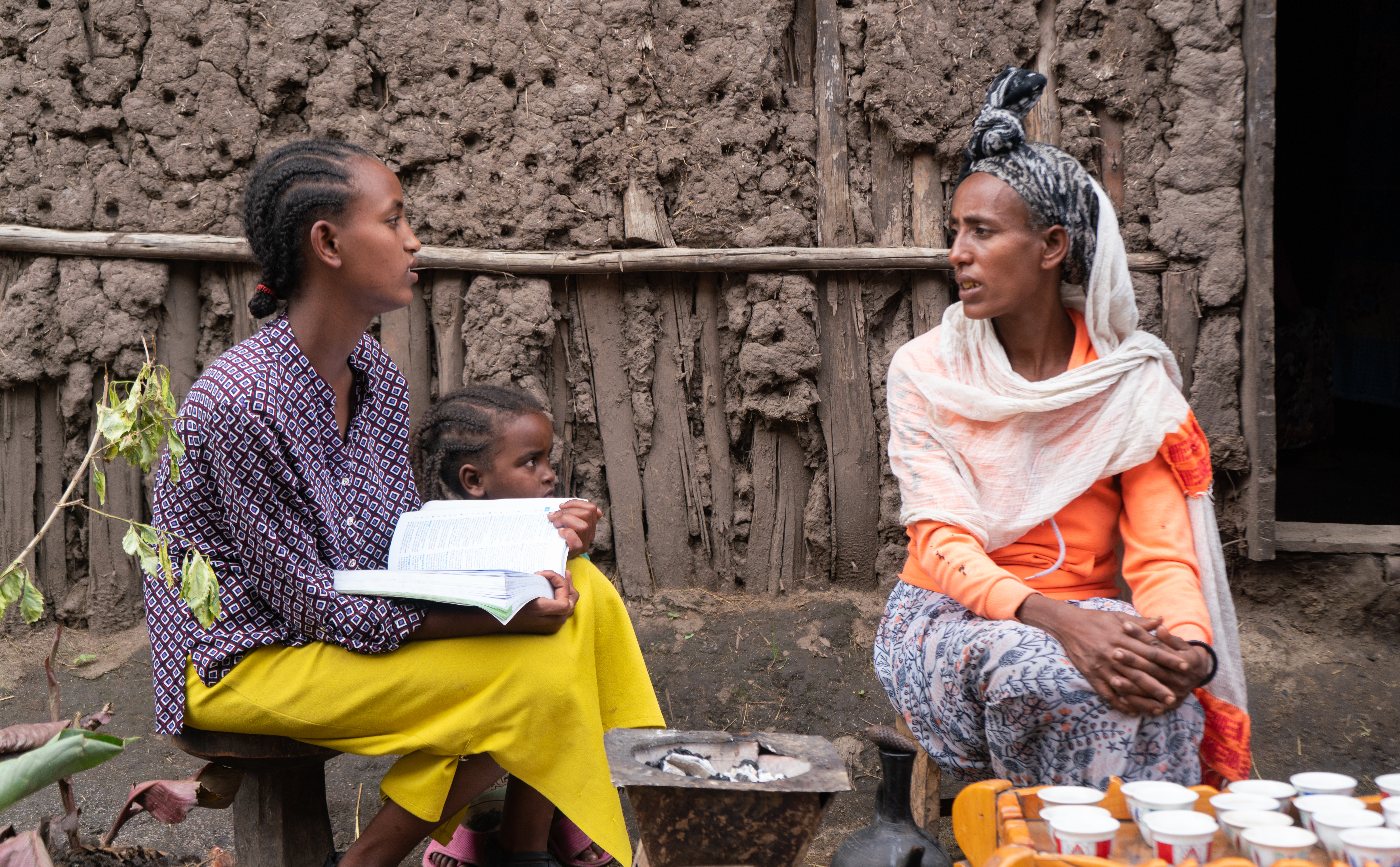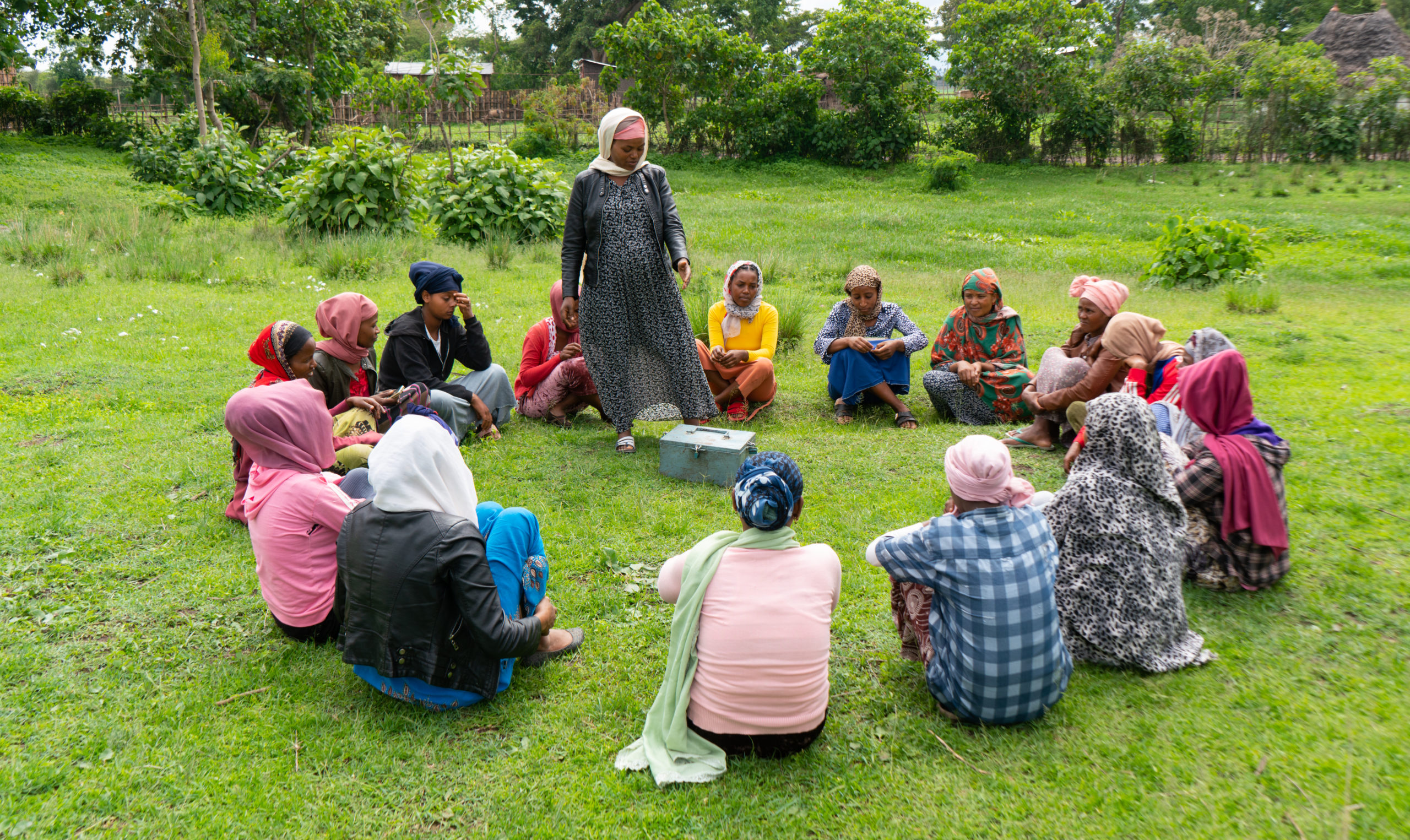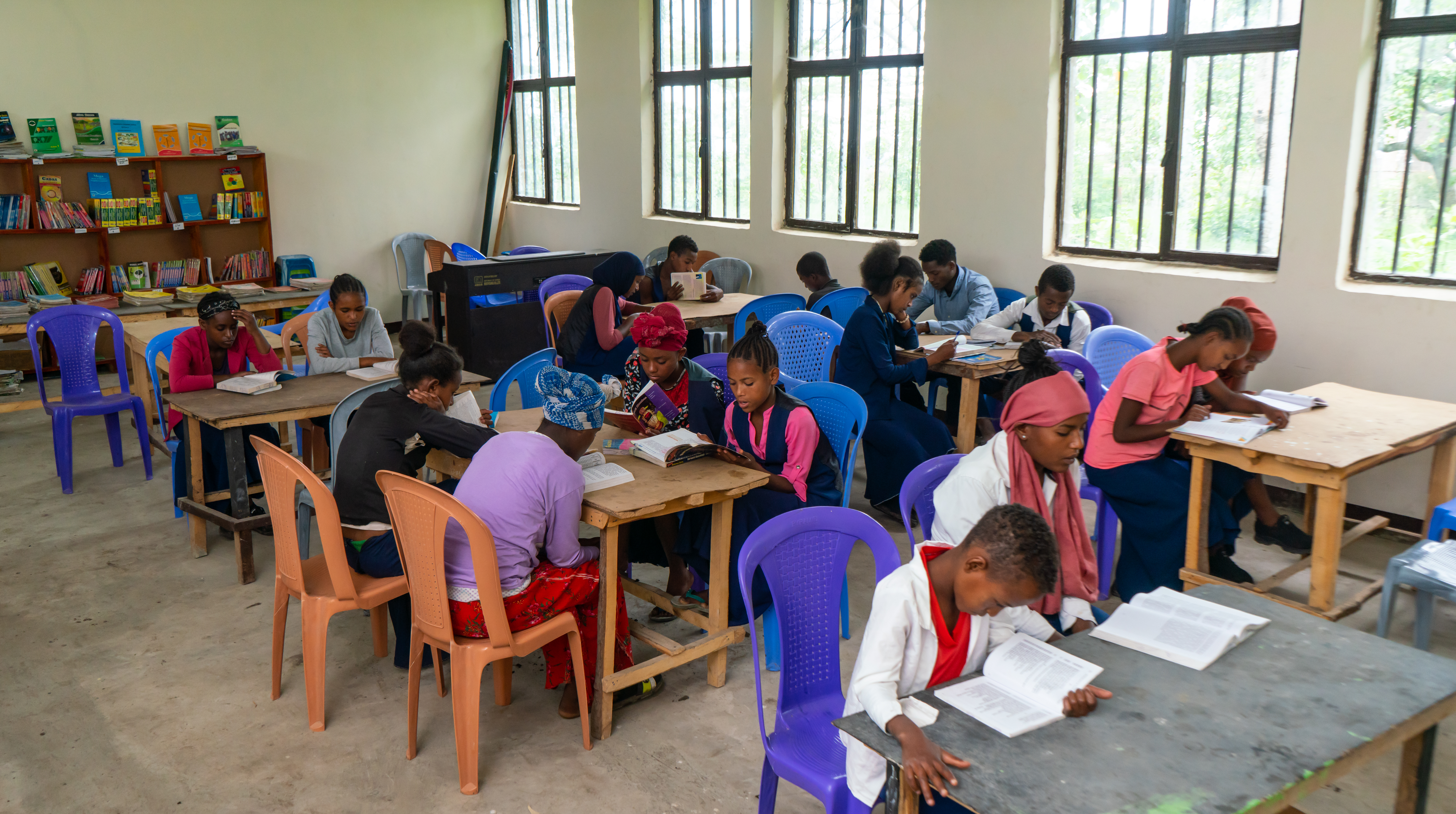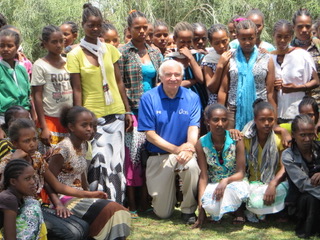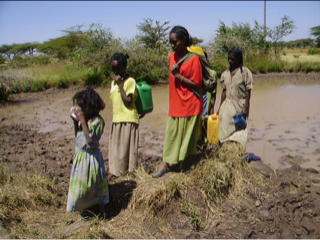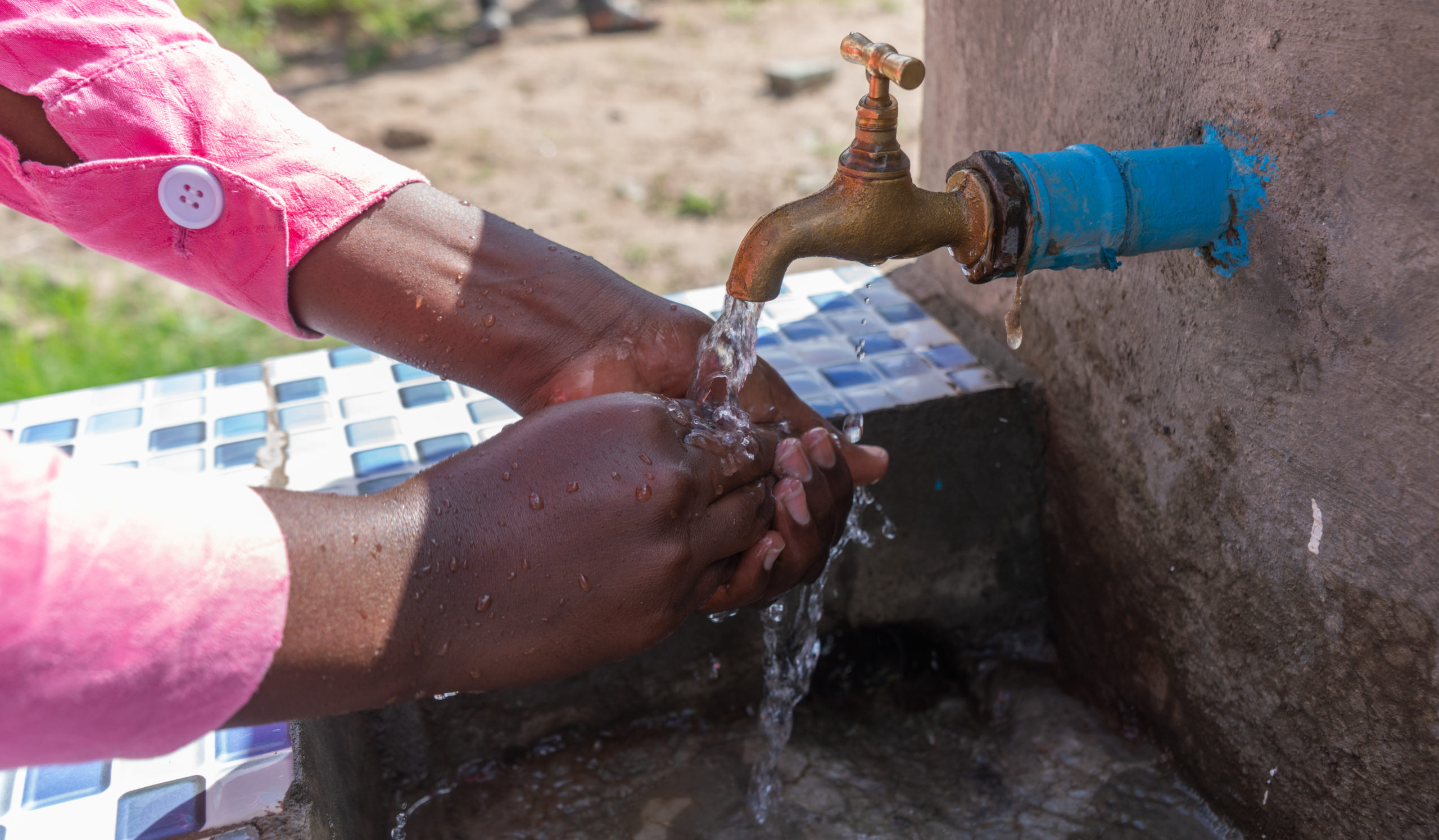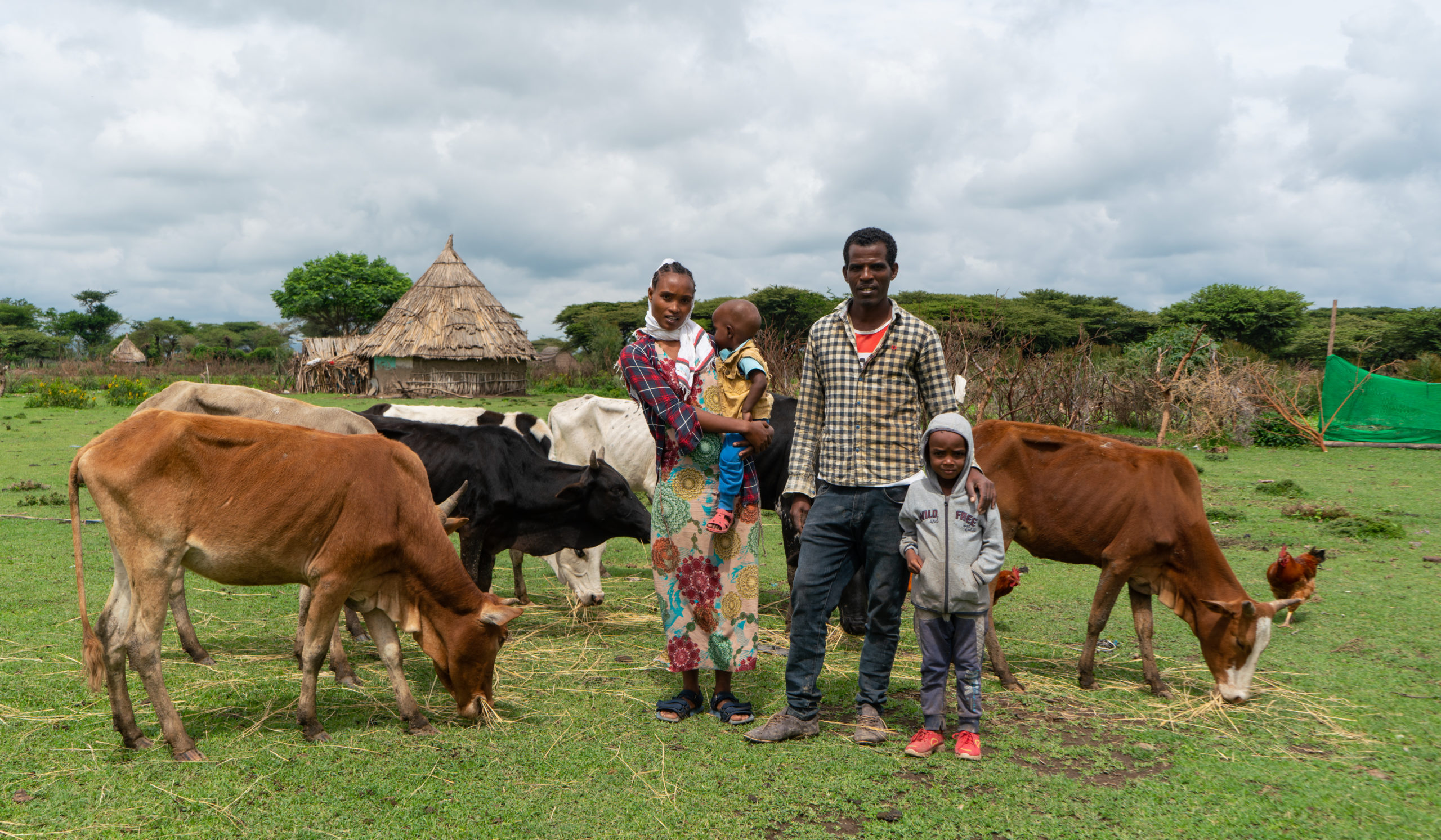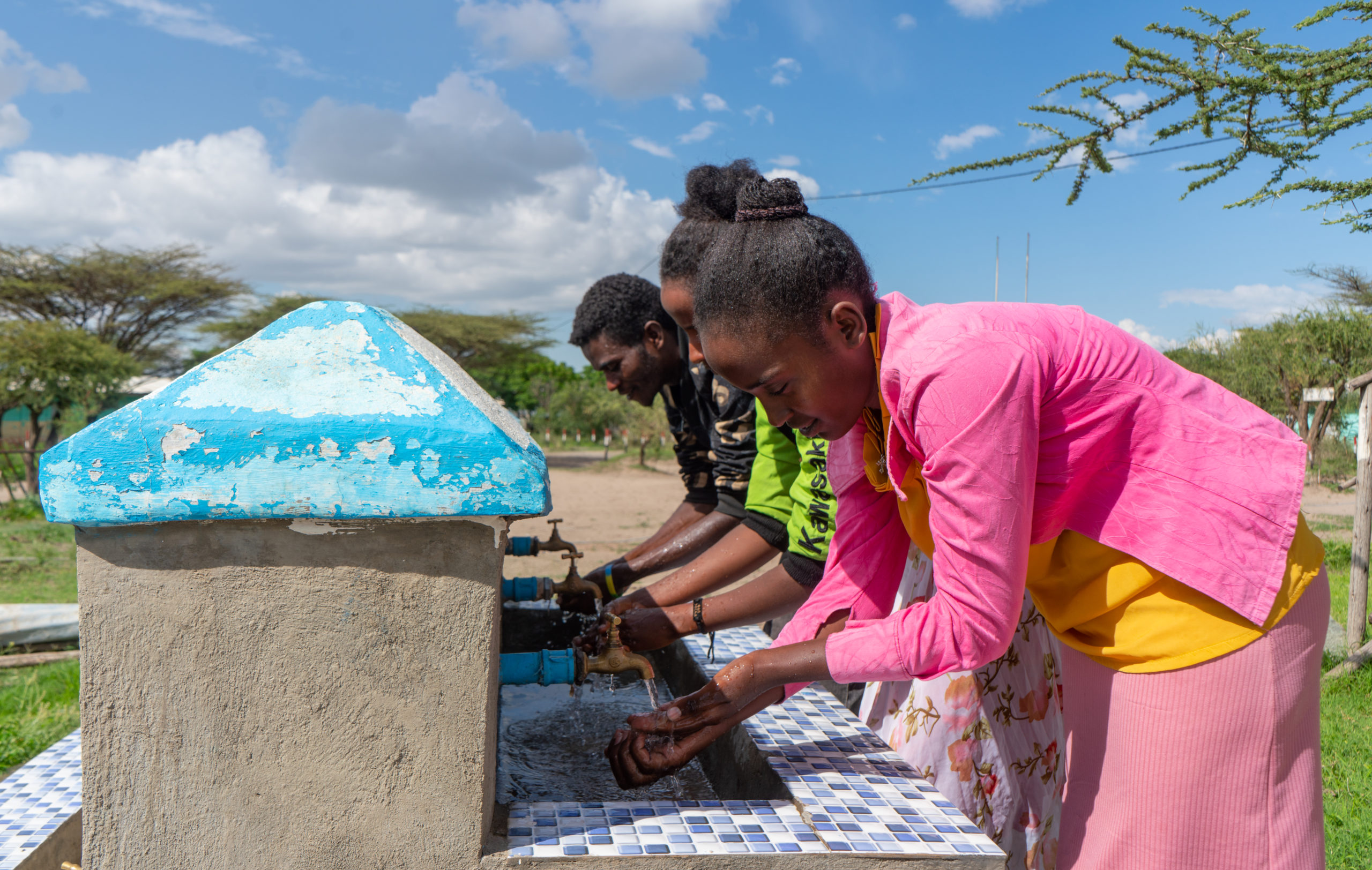
Clean drinking water is one of many ways Catholic Relief Services is helping in countries like Ethiopia. (Submitted photo)
In a recent visit to Milwaukee, Catholic Relief Services Country Representative Zemede Zewdie discussed the recent civil war, drought and urgent needs in Ethiopia, and the impact of GirlsGain in the communities.
GirlsGain was founded by Art Wigchers, a CRS representative in the Archdiocese of Milwaukee, and addresses some harmful traditions such as female genital mutilation, forced marriages often arranged in infancy, lack of emphasis on education for girls, abductions of girls and unequal property rights for females. Zewdie also met with CRS Regional Development Director Tony Pohlen during the visit.
“One aspect of great importance is water,” said Zewdie, who is responsible for significant work in South Sudan and Ethiopia. “In order to get water, women and children will walk 5 to 8 kilometers per day, so it takes three to four hours to collect water. It is a great burden. The people also have to travel for food, and it is difficult to get good nutrition. If we invest in the girls now, they will gain good nutrition practices for the future, which will affect the whole area.”
Zewdie oversees CRS’ largest country program, leading humanitarian response and integrated development programs. Zewdie works with and strengthens the capacity of 13 local partners in charge of implementing projects directly. Before this, Zewdie had served with CRS Ethiopia as head of programming from 2017-21, providing leadership to the program team and supporting local partners’ institutional capacity in implementing humanitarian and development interventions.
Some immediate efforts for CRS include improving the water system, improving the soil and providing education to contribute to the recovery of the country.
“Really the way we approach and view people is to work at human dignity,” Pohlen said. “So, it is not just one thing. We are considering all needs as a form of holistic human development. We listen to and integrate needs expressed by the traditional tribal leader, religious leader and community leaders as to what they want to be done for their program.”
The GirlsGain program is active in 48 communities in rural Ethiopia and will expand to new communities in 2023. GirlsGain has impacted more than 25,000 young girls in the past seven years and reaches out to interested boys as well.
The program, which adjusts to local culture, is designed for 15- to 19-year-old girls, many of whom are already married with children. They focus on education and returning to school for those who have dropped out. In addition to tutoring in academics, such as health, nutrition, sanitation and hygiene classes, there are discussions in “gender clubs” about these topics as well as the rights of boys and girls. The boys are included in tutoring and gender clubs to improve learning skills and can witness the capabilities of the girls.
“If we don’t include the boys, they have a way of stopping the girls from reaching their potential,” Zewdie said. “The program has provided access to the girls to continue their education and helps them with economic activities, especially in leadership.”
Select girls and boys who assume leadership positions in the GirlsGain Project are awarded cellphones or a small solar panel. These items are significant in an area where few families have a phone or electricity. The solar panel is half the size of a standard sheet of paper and can keep three lights going for six to eight hours each evening. This is an especially powerful gift when these are the only lights in the area.
In hearing from the girls who lead the GirlsGain programs, Wigchers said they offer monthly meetings for the boys and girls, and separate meetings for the parents.
“This has been transformational, and during the meetings, there are times the wife has the courage to say what she is thinking to her husband, which opens up communication with the whole family and greater community,” Wigchers said. “The program is free of charge, and what makes it good (is that) it is in all the public schools and open to all the different religions in Ethiopia.”
The predominant religions are Islam and Ethiopian Orthodox, with Catholics comprising less than 1 percent of the population.
“The program really teaches ethics and how to treat others fairly — ethics is religion,” Wigchers said. “You can call it what you want, but when you teach ethics, you are teaching others to treat others fairly and how to gain respect. That is what impressed me with CRS because the organization helps all, regardless of religion, nationality or race.”
In an area where there are more than 80 tribes and different languages for each, change is happening. Some of the female leaders can speak three to five languages and have not only led the GirlsGain groups but started successful small businesses, providing them with more freedom.
“While there have been significant improvements, we also see a sobering 48 million (including 28 million in East Africa) people (worldwide) in need of food and in acute starvation mode,” Wigchers said. “This has put little children and mothers most at risk.”
Pohlen agreed, adding that just the drought alone has caused significant issues.
“With such a drought, we have large scale emergencies, and CRS tries to address those and move along sustainable development projects to help the immediate needs,” Pohlen said. “We are also trying to build strength for GirlsGain, providing water and other long-term aid, which is thanks to all of our great supporters.”
The needs in Ethiopia are dire. For those interested in helping with humanitarian aid, visit crs.org/ways-to-give-emergency.

